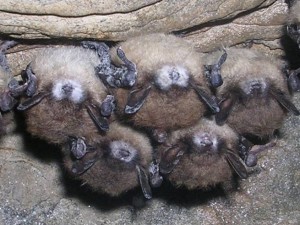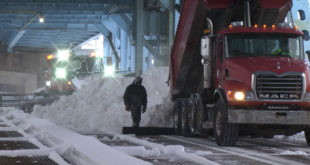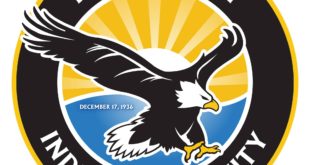 First District U-S Representative Dan Benishek has reacted cautiously to the decision by the the US Fish and Wildlife Service of their intention to list the Northern Long Eared Bat as Threatened under the Endangered Species Act. The bat population has been devastated by White Nose Syndrome, a fungal infection that attacks the bat’s skin. Benishek says he’ll continue to try to negotiate a balanced position that will protect the bats, without endangering jobs and use of private property. A bridge project in the Traverse City area has already been halted by the state because bats were found nesting in a nearby wood. Benishek says it’s important to remember that human activity is not what’s threatening the bats in the first place. The Fish and Wildlife Service will continue to collect comments about the fate of the bats.
First District U-S Representative Dan Benishek has reacted cautiously to the decision by the the US Fish and Wildlife Service of their intention to list the Northern Long Eared Bat as Threatened under the Endangered Species Act. The bat population has been devastated by White Nose Syndrome, a fungal infection that attacks the bat’s skin. Benishek says he’ll continue to try to negotiate a balanced position that will protect the bats, without endangering jobs and use of private property. A bridge project in the Traverse City area has already been halted by the state because bats were found nesting in a nearby wood. Benishek says it’s important to remember that human activity is not what’s threatening the bats in the first place. The Fish and Wildlife Service will continue to collect comments about the fate of the bats.
Here is the Congressman’s full statement:

Washington, D.C.- Following the announcement from the US Fish and Wildlife Service of their intention to list the Northern Long Eared Bat as Threatened under the Endangered Species Act, Congressman Dan Benishek said the following:
“Since the beginning of this process, my focus has been on ensuring that all stakeholders, from business owners to those who manage our public transportation and utilities here in Northern Michigan have an opportunity to voice their concerns about how this listing will affect their ability to make a living. While it is important to protect this bat species, we must recognize that human activity is not the primary driver of the population decline. I am pleased that, at a minimum, the USFWS decided to continue gathering public input in order to find a solution that balances environmental protection with reasonable economic development.”
In addition to listing the bat as threatened, the USFWS also released an interim special rule that will provide temporary guidance for the many land owners, government agencies, and others in the range of the bat. The public will have an additional opportunity to provide input on the final management process (known as the final 4d rule) until July 1, 2015.
Previously, Dr. Benishek penned a bi-partisan letter to the USFWS urging them to extend the public comment period in order to allow additional time for input. This letter came in the wake of reports that construction would be delayed in Traverse City in order to protect the bat, despite the fact that the USFWS had not even ruled on the species’ status yet.
 Keweenaw Report Your Source for Local News and Sports
Keweenaw Report Your Source for Local News and Sports





